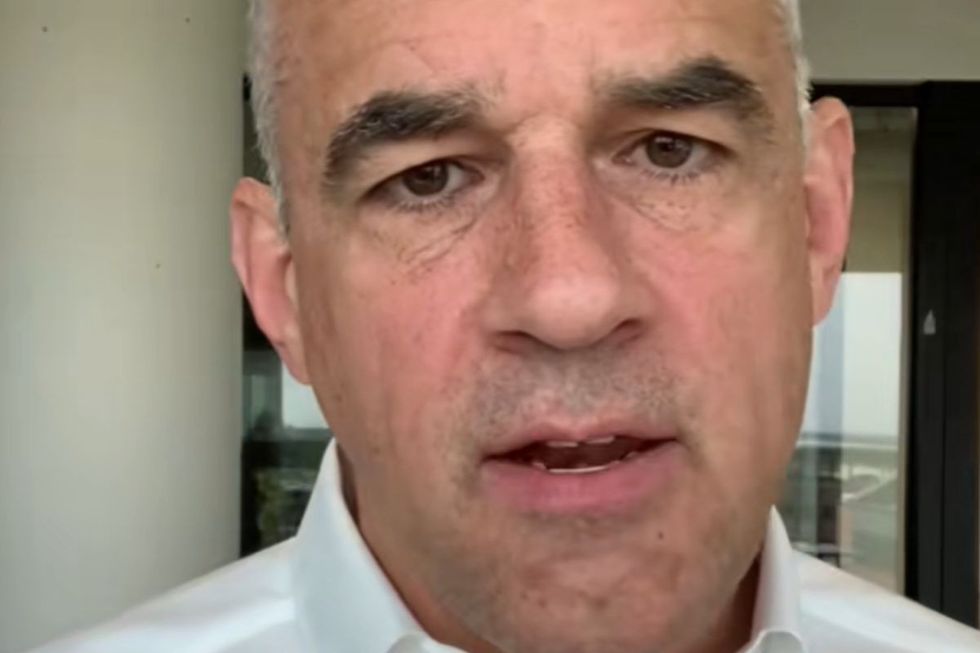



A doctor has recommended a 10-minute hack people should do "after every meal" to stop plague building up in the arteries.
Heart attacks still present a large threat in Western countries, owing to the abundance of cholesterol and saturated fat in common diets.
Fortunately, incorporating simple daily habits could dramatically reduce heart attack risk, according to the co-founder of Longevity Health, who specialises in preventative care and optimising health and longevity, Dr Vassily Eliopoulous.
The doctor recently shared his insights on preventing cardiovascular disease through lifestyle modifications.

Dr Eliopoulous outlined four key strategies to cut the risk of a heart attack
YOUTUBE
He emphasised that heart attacks typically develop gradually from everyday habits that people don't realise are harmful.
Dr Eliopoulous outlined four key strategies that can help identify and prevent heart attack risk years before any symptoms emerge.
His approach focuses on accessible daily practices combined with specific medical testing beyond standard cholesterol checks.
His recommendations centre on four fundamental practices that require minimal effort but offer substantial cardiovascular benefits.
These include taking brief walks following meals, increasing consumption of omega-3 fatty acids through diet or supplementation, maintaining consistent sleep patterns with eight hours nightly, and monitoring specific cardiovascular biomarkers.
The physician stressed that conventional cholesterol testing alone provides an incomplete picture of heart health.
He advocates for comprehensive blood work that includes markers such as apolipoprotein B, lipoprotein a, homocysteine and high sensitivity CRP.
These measures, according to Dr Eliopoulous, can reveal cardiovascular risks well before traditional symptoms manifest.
Dr Eliopoulous explained the science behind each recommendation, noting: "Most heart attacks don't happen out of nowhere, they build slowly out of habits that you didn't even know were hurting you. Walk after every meal."
He noted that "even walking just 10 minutes after a meal can help lower that post-prandial blood sugar spike, which can significantly reduce inflammation, which are two major risk factors for plaque build-up in arteries."

A 10-minute walk after a meal can help reduce inflammation
GETTY
Regarding omega-3 intake, he advised: "Prioritise omega-3 intake, wild-caught fish like salmon high quality omega-3 supplements can help to lower triglyceride levels and lower intravascular inflammation, and reduce arterial stiffness."
The doctor was particularly emphatic about sleep, stating: "Sleep like your life depends on it, because it does.
"Sleeping less than six hours a night can increase heart attack risk by up to 200 per cent. Prioritise your sleep, aim for consistency, and eight quality hours a night."
He emphasised the importance of regular monitoring: "Get your apolipoprotein B, lipoprotein a, homocysteine and high sensitivity CRP checked on a regular basis. These can help show your real heart attack risk years before any symptoms show up."
Dr Eliopoulous concluded that following these measures will ensure you'll "never be the person who gets surprised by a heart attack".
